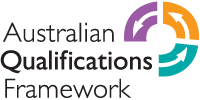This unit describes the skills and knowledge required to prepare for and participate in quality audits as a member of a quality audit team. The types of audits may include internal or external systems audits, process audits or product/service audits. The process includes reviewing designated documentation; identifying and developing checklists and audit related documentation; preparing audit plans and evaluating information; and reporting findings to the lead auditor.
The unit applies to individuals with a broad knowledge of the quality auditing environment, who gather, analyse and evaluate information from a variety of sources and provide objective audit findings, to be included as part of the audit report.
No licensing, legislative or certification requirements apply to this unit at the time of publication.





